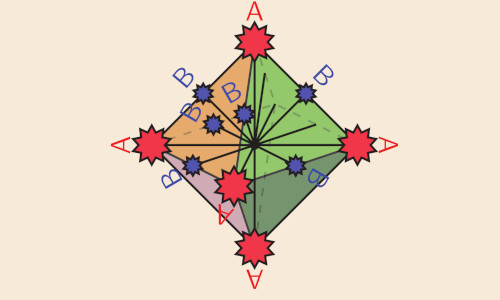
In questo senso trovo particolarmente interessante l'articolo An Unlikely Cohort. Disrupting the Stereotypes about Mathematicians and their Careers di Taryn Butler Lewis, Tasha Inniss, Monica Jackson e Calandra Tate Moore in cui le ricercatrici cercano di esaminare in vari ambiti un problema nel problema, quello delle donne matematiche afroamericane:
Since 1943 when the first Black woman, Dr. Euphemia Lofton Haynes, earned her doctorate, Black women continued to excel in the mathematical sciences, even if they did not earn a Ph.D. Case in point, the famous book, Hidden Figures, highlighted Katherine Johnson who served as a research mathematician at NASA.Altro articolo interessante, classificato tra le opinion, è Increasing the Number of Women Faculty at R1 Schools: Research-based Strategies that Work di Jenna Carpenter in cui si prova ad affrontare il problema della parità di genere sotto vari aspetti: quelli del reclutamento, di chi è chiamato a giudicare, della commissione, e della fase successiva all'assunzione.
La conclusione?
We can make real progress in diversifying our faculty. There is no shortage of research-based best practices and resources to help us navigate around our biases and do a more successful job of recruiting and evaluating candidates and mentoring faculty. But if we want to hire and retain a more diverse and qualified faculty, we have to be intentional and proactive. We have to be willing to devote the time, effort, and resources necessary to address the issues. Once we do, we are likely to find that our department is not only more diverse, but also a more supportive, innovative, and pleasant place for everyone to work. This, in turn, will help us attract and retain even more diverse and outstanding faculty in the future.Ultima menzione all'articolo di Karin-Therese Howell e Nancy Ann Neudauer dedicato alla matematica nigeriana Grace Alele-Williams:
Grace Awani Alele-Williams is a woman of many firsts. She is the first woman in Nigeria to receive a doctorate in any field and the first woman appointed to be the Vice-Chancellor of an African university. She is a champion of numerous women's causes, paving the way to make the road easier for women who came after her. She believes that in being the first, it was essential to demonstrate that women could succeed in these roles.Ah! L'immagine di copertina è una rappresentazione di un'algebra di Lie (e vi dovrei spiegare cos'è un'algebra e poi cos'è un'algebra di Lie: la versione semplice della faccenda è che stiamo parlando di uno spazio vettoriale che mi semplifica lo studio di un sistema matematicamente complesso) e si riferisce al lavoro nel campo specifico di Georgia Benkart.

Nessun commento:
Posta un commento